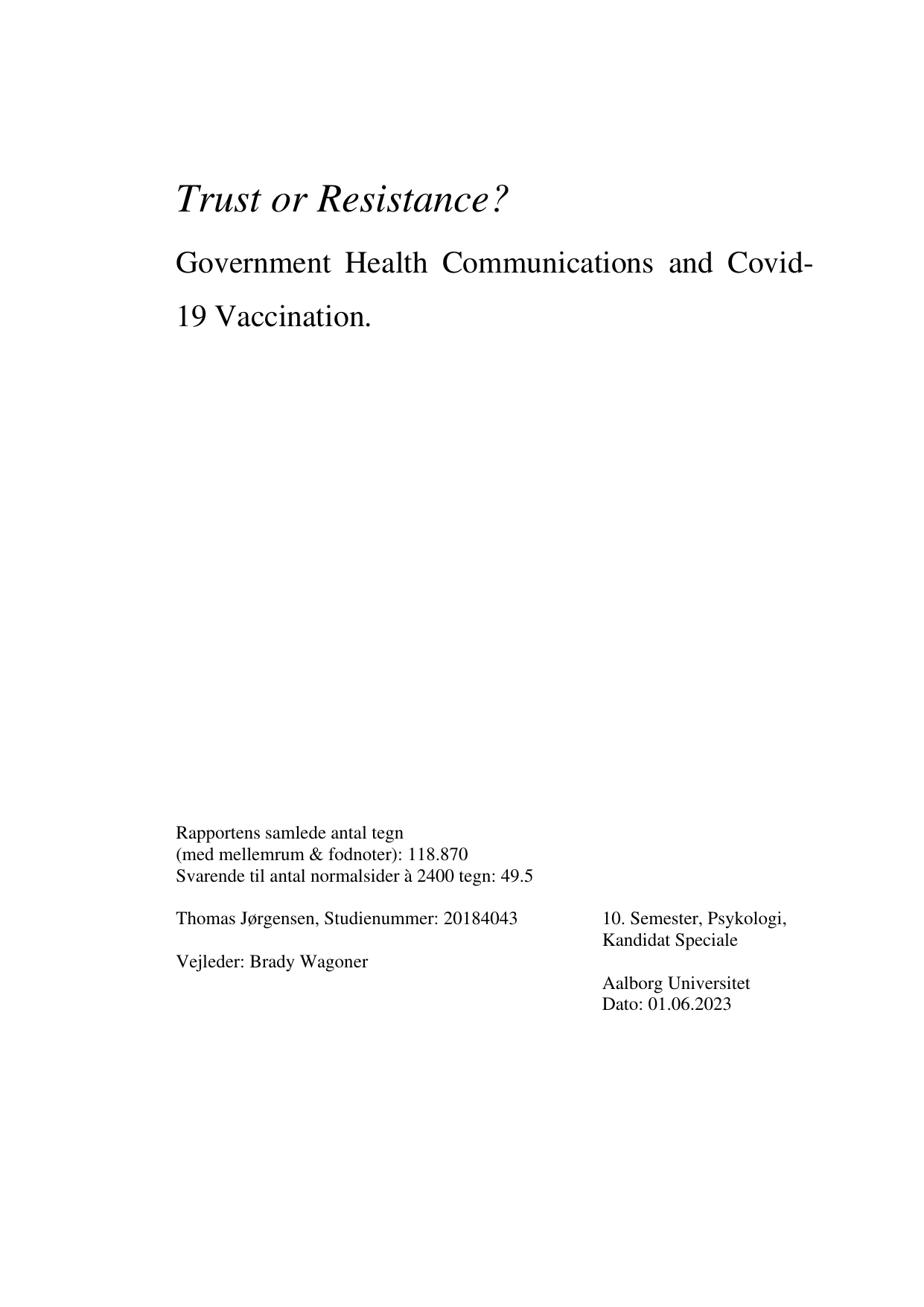
Trust or Resistance? Government Health Communications and Covid-19 Vaccination.
Term
4. term
Education
Publication year
2023
Submitted on
2023-06-01
Abstract
The aim of this thesis is to answer the research question: How are government health communications understood and used by people to make decisions about Covid-19 vaccination? Social Representation Theory is used as theoretical framework to understand the re-spondents’ pre-existing structured set of socially situated ideas and how they influ-ence their understanding and use of a government health communication. An online questionnaire was used with a combination of rating scales and open-ended questions, that aim to create a meaningful space for complex meaning-making and encapsulate the respondents’ understanding and use of a government health communication. The chosen government health communication is by the Danish health authority Sundhedsstyrelsen and is a recommendation that pregnant women should be Covid-19 vaccinated. The data collection resulted in 92 respondents, but 49 were removed as they only partially completed the questionnaire (n=43). The mean age of the sample is 31.2 (SD= 12.5). The gender distribution is 35% male (n= 15) and 65% women (n=28). The analysis of both quantitative and qualitative measures resulted in two main find-ings, and a series of minor findings. The first main finding is that the understanding and use of a government health communication in respondents’ decision making is highly influenced by two ele-ments: Trust and Resistance. A finding which reaffirms the scientific literature. However, by use of SRT as a theo-retical framework, this thesis has been argued to contribute with an alternative under-standing of how government health communications are used and understood by people to make decisions on Covid-19 vaccinations. The second main finding is that the government health communication has influ-enced a good portion of the sample and facilitated a perception of much lower Covid-19 vaccine risk for pregnant women. A finding that has been said to both contribute and reaffirm the scientific literature. The thesis also had 4 minor findings: 1. The respondents’ understanding of risk in some cases, have been influenced by their degree of familiarity with the object in question. 2. A historical analogy was used by one of the respondents, to understand and use the government health communication. 3. Non-scientific nationalistic cues have been argued to directly influence one’s understanding of the Covid-19 vaccine’s risk. 4. Those who trust a government health communication, can still have reserva-tions, and worry about possible political motives. The data provided in this thesis can be used to better understand how social represen-tations can facilitate both trust and resistance to a government health communication. The data provided can also be used to potentially make future government health communications on Covid-19 vaccinations more effective and persuasive.
Documents
